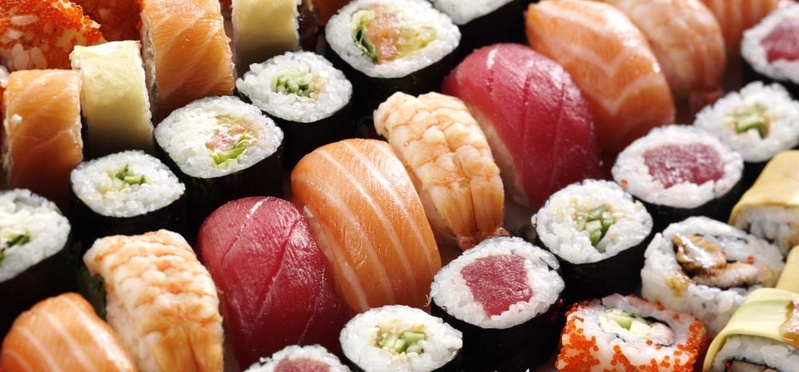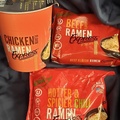Recently a Seattle sushi restaurant, Mashiko, posted an open letter on its website saying that people who criticize the restaurant for having non-Japanese employees sushi are bigots.
“Stop being an ignorant racist,” the letter said, after noting that the restaurant is Japanese-owned and there are Japanese as well as non-Japanese staff. The letter also defends one of the restaurant’s most popular chefs, a Caucasian woman, who’s worked there for 12 years and has a loyal and devoted following.
“Should you refuse her fare based on her gender or race, you are an absolute fool,” the letter states.
I feel for the staff and owners of Mashiko, and I’m surprised that diners in such a great foodie town as Seattle would be so unsophisticated that they’d make decisions on food quality just on a racial basis.
Still, I think this is a much more complicated discussion than just bigotry (though that’s part of it, for sure).
I have to admit that I am wary when I enter Japanese restaurants where the floor and kitchen staff are not Japanese. I would make the same judgments of most ethnic cuisines—I like seeing Italians in an Italian restaurant, Mexicans in a Mexican restaurant, and yep, French in a French restaurant.
But that doesn’t mean non-Japanese can’t make terrific Japanese food, including sushi. It’s been years since I’ve had anyone who’s not Latino serve me at a Benihana, for example, and their food is still pretty darned good (mostly because it’s been formularized down to a science, including the same bad jokes from years ago).
It all depends on training and passion. A good friend of mine from New York art school days is now a master chef in Seattle (teaching young gourmets at the Art Institute) and I know his food is authentic no matter which cuisine he chooses to cook, or mix and match into a fusion style. When he began his career as a chef, he was so good at Asian-influenced cuisine he was hired by Chef Roy Yamaguchi to travel the world and open Roy’s restaurants.
And I’m sure a Caucasian woman can make terrific sushi (though in Japan there’s historically a myth that women can’t make sushi because their hands are too warm, but that’s another story about prejudice!).
Having said that, I’ve been to lots and lots of ethnic restaurants that are run by people who are not the ethnicity of the food they serve, and they’re just cashing in on a fad.
Are there Japanese restaurants run by Japanese that are awful? I’m sure there are. I’ve certainly dined at some that I wouldn’t return to.
But I would say the chances of a Japanese restaurant being bad are exponentially higher if the owners and staff are not Japanese. If Japanese was chosen because the owners thought it will be popular, uh…. no thanks.
The Japanese government even announced in 2006 that they would send out taste testers to Japanese restaurants worldwide and certify the “authentic” ones. That was a bad idea and I don’t think it was ever actually implemented, but the spark for the policy was a bad meal served to a Japanese agriculture minister.
I know that chefs can’t all be trained in Japan, or Hong Kong, or Paris, or wherever, to earn their “authenticity chops.” I know most chefs in Japanese restaurants in the U.S. don’t get to go to Japan to be trained. Not even Benihana does that anymore—for years, their chefs used to undergo rigorous training in Japan before they could start throwing knives and eggs around.
Not every sushi chef can spend a lifetime perfecting his craft like the father and sons of the documentary Jiro Dreams of Sushi. I know a young man who became a sushi chef in Denver because the restaurant needed someone, and he volunteered. He learned some rudimentary things about sushi and off he went.
I have had a lot of AWFUL sushi over the years, and the fault isn’t so much ethnic differences but simple lack of training, education, and cultural sensitivity.
The worse offenses and obvious signs of fakery: rice that’s either overcooked or undercooked. Using cheap nori that’s hard to bite through, or using cheap nori and not toasting it correctly, or not toasting it at all. Not using sushi vinegar in the rice. Putting a huge mound of wasabi on the plate, or serving wasabi with “California rolls,” other “futomaki,” or inari sushi, which don’t need wasabi and soy sauce.
Does Mashiko in Seattle have to have an all-Japanese staff to serve good sushi, and authentic Japanese food? Nope.
In Denver many sushi places are run by Koreans. In fact the best sushi-to-go is made by a Korean family who runs a counter within a large Korean supermarket. This family makes the sushi that’s sold at the one Japanese grocery in downtown Denver.
In the end, you can’t judge sushi by who makes it. You have to judge it by its taste, quality, and authenticity. I have my prejudices, and I’m willing to admit it. But I’m also willing to give places a try to see if the food’s good.
If it’s tasty and authentic, it doesn’t really matter to me who makes it and what color she is.
*A draft version of this article was first published in the Pacific Citizen newspaper of the JACL. This version was published on Gil Asakawa’s blog, Nikkei View on September 14, 2013.
© 2013 Gil Asakawa







